In today’s Vatnik Soup, I’ll take out my crystal ball and predict what the alliance between the US and Russia could mean for Ukraine, Europe and geopolitics in general. These recent changes could be a real risk for the whole of Europe, and need to be addressed quickly.
1/23
1/23

Some of us have been reporting on Trump’s pro-Kremlin tendencies for years now. His Moscow connections go back all the way to the late 80s, and the 2016 US presidential elections raised a lot of red flags about the close connections of his associates to Russian operatives.
2/23



2/23




The recent Rubio-Lavrov meeting in Saudi Arabia was an eye-opening event for many who were still optimistic about Trump and Ukraine – the outcome was that Putin got absolutely everything he’s ever wanted from the war, and at the same time it seems that the US got nothing.
3/23


3/23

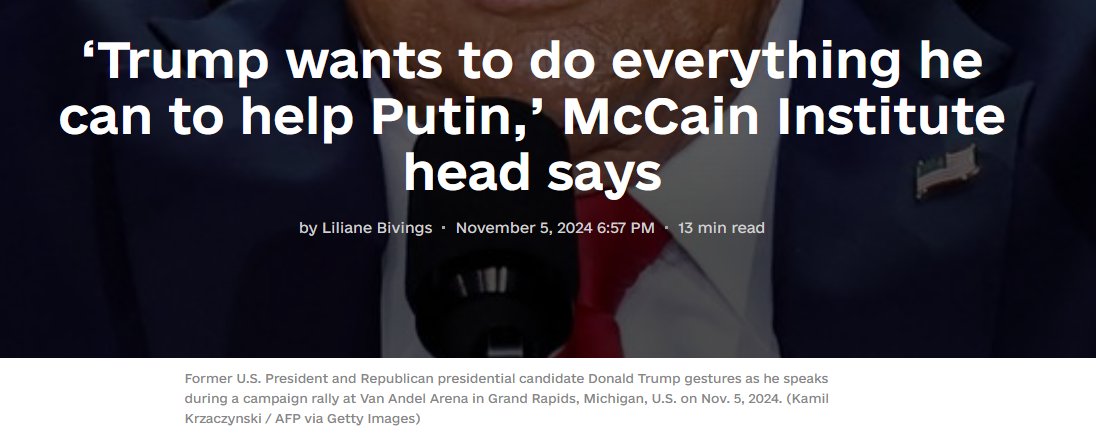

From the beginning of the war back in 2014, Moscow’s goals in Ukraine have been the same: install a pro-Kremlin puppet regime in Kyiv after the ousting of Yanukovych, capture vast areas of land from Ukraine, alienate Ukraine’s allies and undermine NATO.
4/23



4/23



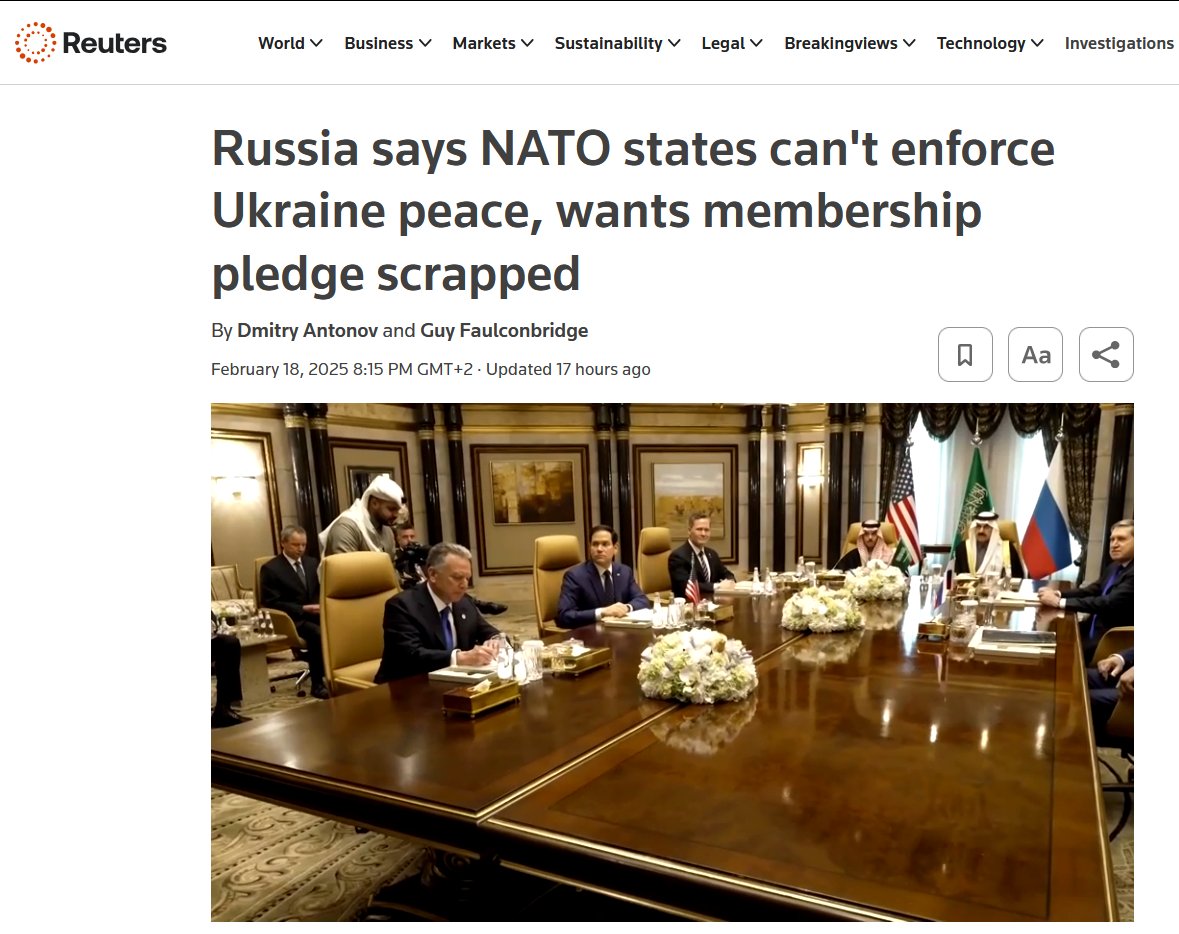
In Feb 2022, their initial plan to capture Kyiv in 3 days & install a puppet regime failed, and the war quickly expanded. Eventually, Putin abandoned the idea of forming puppet states of LPR & DPR, and announced the annexation of Donetsk, Kherson, Luhansk & Zaporizhzhia.
5/23


5/23



Ukrainians fought fiercely, and even managed to take away a big part of Russia’s Black Sea navy. Russia resorted to meatwave attacks, bombing civilians & critical infrastructure, and controlling the online information space through massive disinformation campaigns.
6/23



6/23

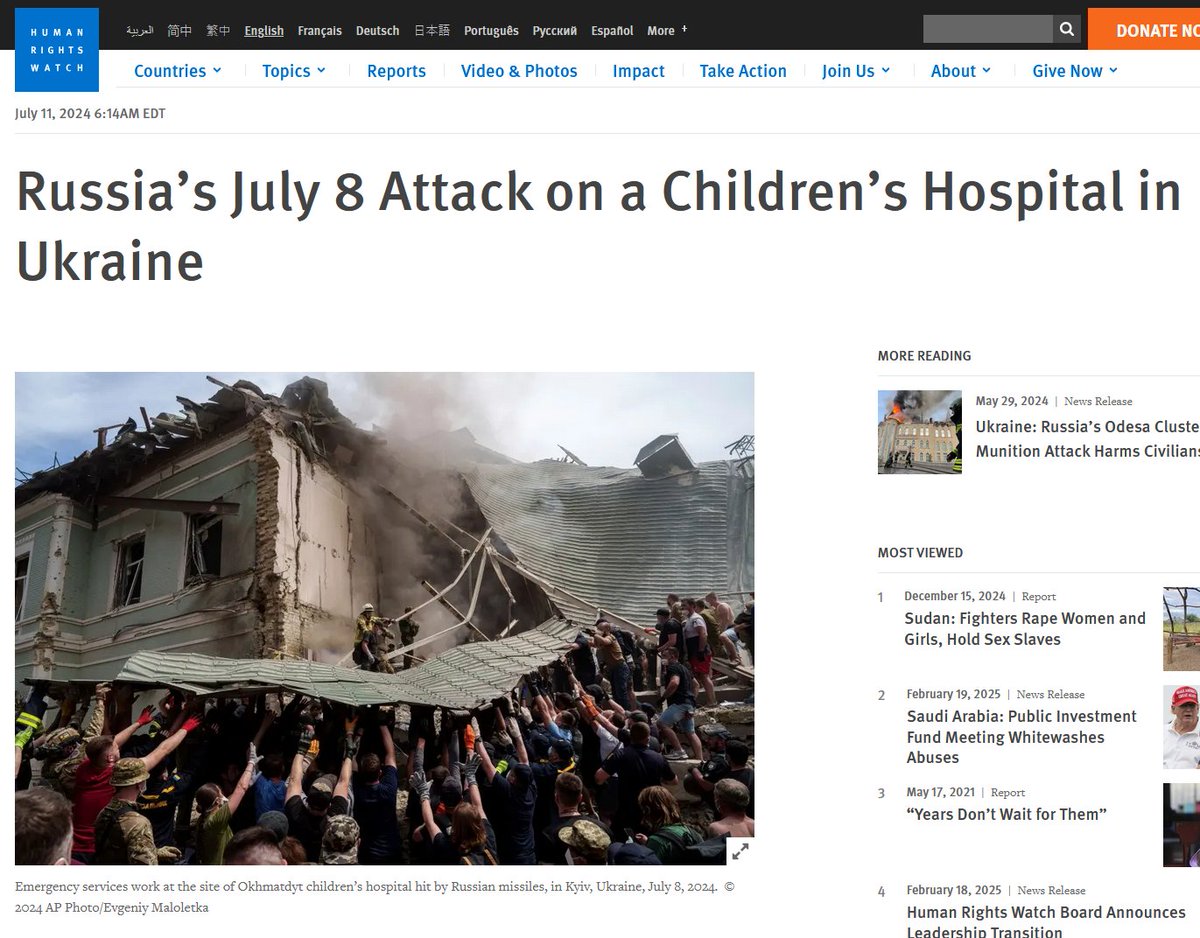

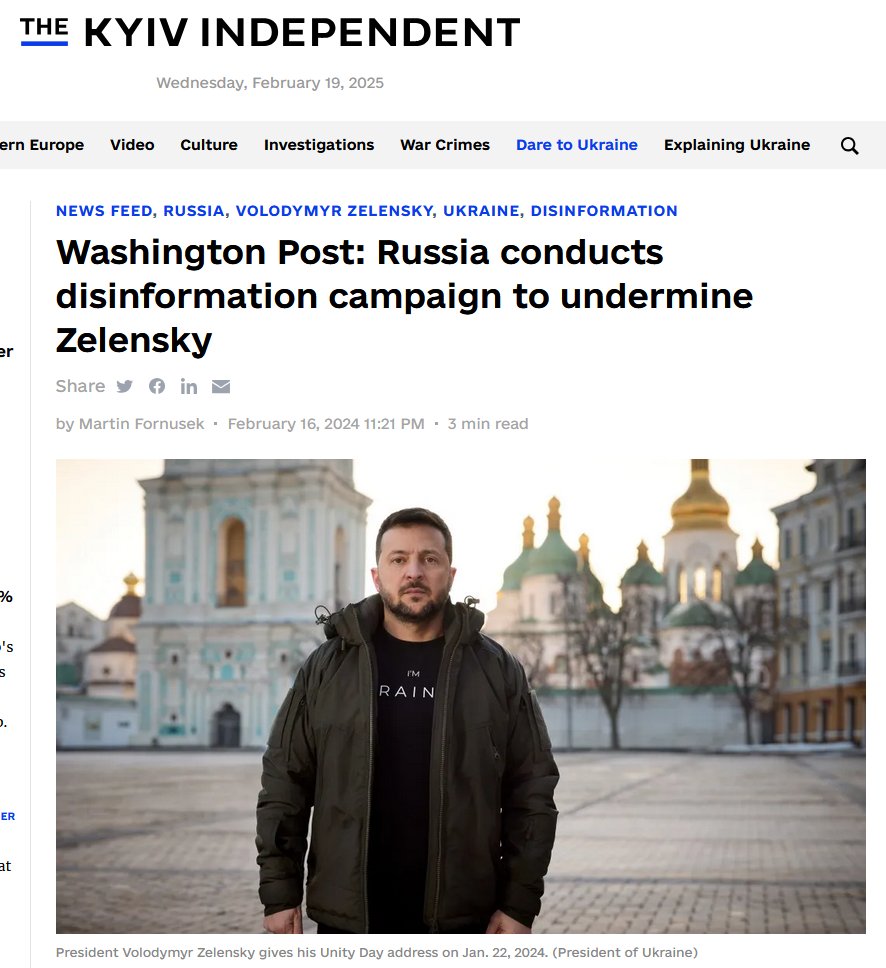
Then, after almost 3 years of brutal war, everything changed, as they had hoped: Trump won, and this time it was quickly obvious whose side he was standing on. We had already seen Trump capitulating to Putin in Helsinki in 2018, but this was something completely different.
7/23
7/23
First of all, Trump excluded the Europeans and even Ukrainians from the peace talks. Soon after the meeting, both sides agreed to “lay the groundwork for future cooperation on matters of mutual geopolitical interest and historic economic and investment opportunities.”
8/23


8/23



After the meeting, Rubio stated that they’d restore staffing to embassies, create a “high-level team” to support Ukraine-Russia peace talks, and to “explore closer relations and economic cooperation”.
Lavrov said that “Russia will not accept NATO troops in Ukraine.”
9/23

Lavrov said that “Russia will not accept NATO troops in Ukraine.”
9/23

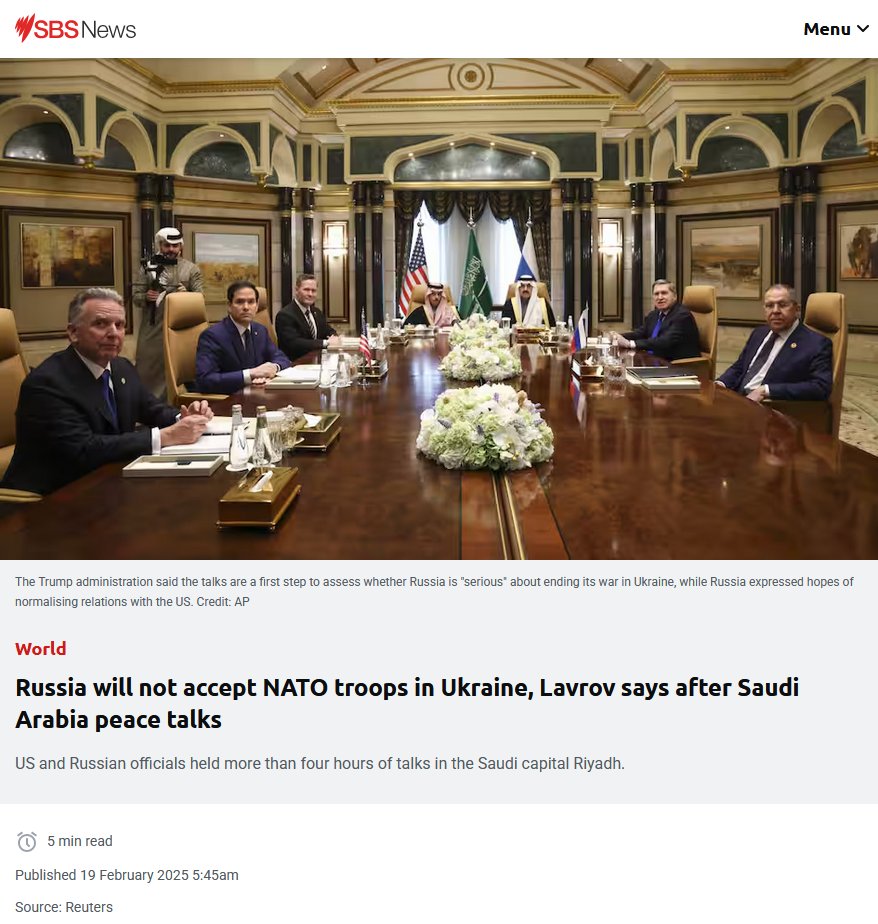
The US side also proposed a three-stage peace plan:
1) Ceasefire deal
2) Elections in Ukraine
3) Peace deal
Lavrov later claimed that he was “unaware” of such a plan, commenting that “I haven’t seen this information, I haven’t seen this news.”
10/23

1) Ceasefire deal
2) Elections in Ukraine
3) Peace deal
Lavrov later claimed that he was “unaware” of such a plan, commenting that “I haven’t seen this information, I haven’t seen this news.”
10/23

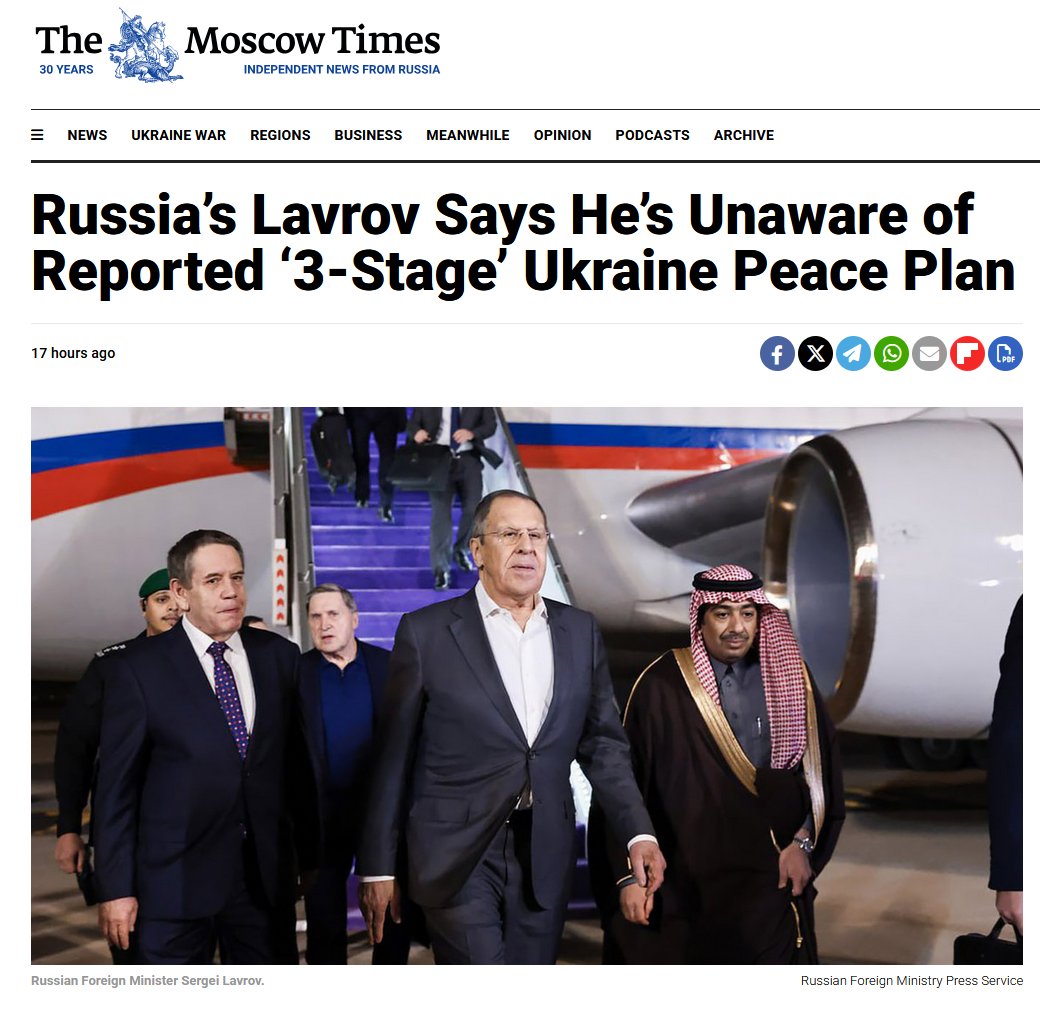
Here’s how I see things going in the near future: first, Trump and Putin will come up with an extremely biased and unfair ceasefire plan for Ukraine. It will most probably include Russia keeping all the invaded regions, and Ukraine agreeing to not join NATO.
11/23

11/23

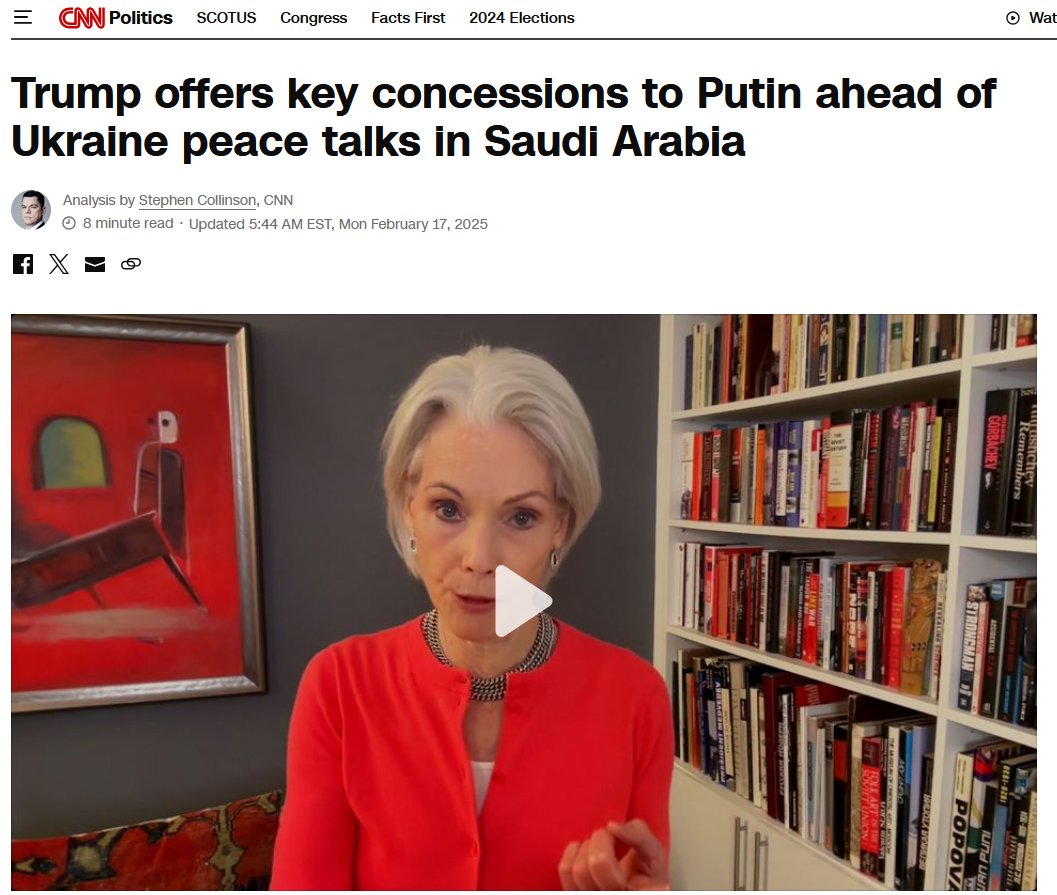
This will of course be rejected by both Ukraine and the EU, after which the two sides will eventually find some kind of middle ground and come up with a flimsy Minsk 3 type of deal. During all this time, both the US and Russia will defame Zelenskyy, blaming him for the war.
12/23

12/23


The goal there is to decrease Zelenskyy’s popularity, and try to promote a pro-Kremlin and pro-Trump leader in the country. This process was already started by Trump, who said that Zelenskyy’s approval rate is “down at 4%,” and that he shouldn’t have “started the war”.
13/23

13/23


The Kremlin candidate to lead Ukraine will probably be someone close to Viktor Medvedchuk. This candidate will be heavily promoted by Russian operations and pro-Kremlin Ukrainians like Diana Panchenko (who will also keep on criticizing Zelenskyy).
14/23
14/23
https://x.com/P_Kallioniemi/status/1605479549520687104
Before the eventual ceasefire and elections, Trump will continue criticizing NATO and Europe, blaming them for continuing the war in Ukraine. Some have even suggested that Trump might pull US troops from Europe, leaving it extremely vulnerable to a future Russian invasion.
15/23

15/23


The Trump admin will also continue spreading lies about the aid sent to Ukraine by his predecessor, claiming that the US has “given over double what Europe has” (it hasn’t) and that a large part of the aid has gone missing (it was actually spent elsewhere).
16/23

16/23


If the US and Russia manage to get their puppet regime in power, this will launch a massive operation of dividing Ukraine’s resources between the two. Chinese companies are already operating in the Donbas region, and the US probably wants Russia to kick them out.
17/23

17/23


Part of the deal would also be lifting sanctions against Russia. This would effectively help the Kremlin to bounce back economically and even supercharge their war economy so that they can continue producing weapons and equipment for future wars.
18/23

18/23


Meanwhile, Trump’s threats against Greenland and Canada will continue. Greenland is full of valuable resources, and Canada has some of the largest known reserves of rare earth minerals in the world. Many of these resources are necessary for building modern technology.
19/23



19/23




Even if there is a ceasefire, Putin will probably continue the invasion against Ukraine. Intelligence sources from the US and close allies show that Putin is “not interested in a real peace deal”, and wants to eventually control all of Ukraine.
20/23
20/23

This is also evident from Lavrov’s statements – the Russian Foreign Minister has stated that Ukraine is not a real country and should be divided among Russia, Romania, Poland and Hungary. In Romania, this claim could be even used to get Calin Georgescu elected.
21/23

21/23


Trump has been right about many things in the past, including the need for Europe to get rid of Russian energy & ramp up their defense budgets. But right now, it seems that Europe has become a target for both America & Russia, and the European leaders are in panic mode.
22/23

22/23


To conclude, Trump has offered Putin
1) Ukrainian territory,
2) no NATO membership for Ukraine,
3) no US soldiers in Ukraine,
4) withdrawal of US soldiers from Europe, and
5) sanctions relief
Whereas Trump gets back nothing. Art of the Deal.
23/23

1) Ukrainian territory,
2) no NATO membership for Ukraine,
3) no US soldiers in Ukraine,
4) withdrawal of US soldiers from Europe, and
5) sanctions relief
Whereas Trump gets back nothing. Art of the Deal.
23/23

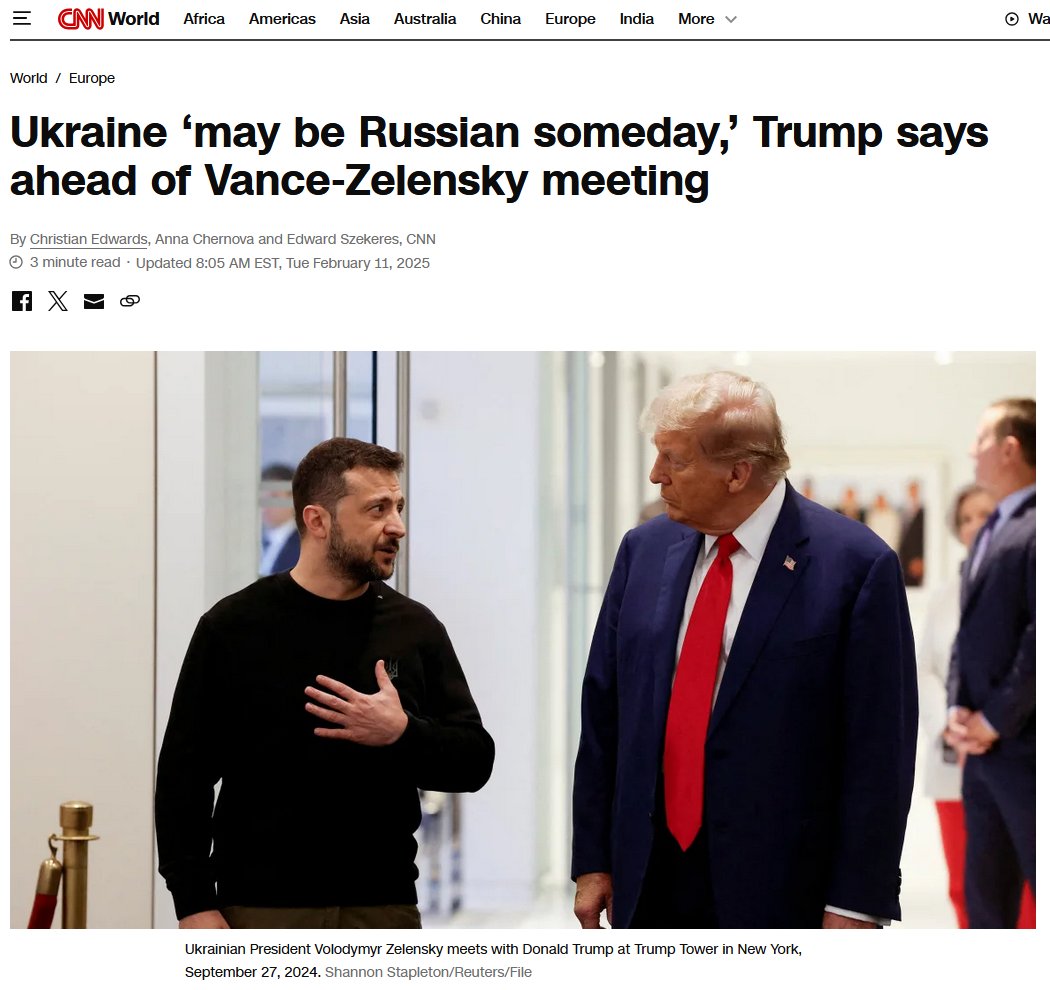
The 2nd edition of “Vatnik Soup — The Ultimate Guide to Russian Disinformation” is officially out!
You can order your copy here:
kleart.eu/webshop/p/vatn…
You can order your copy here:
kleart.eu/webshop/p/vatn…
• • •
Missing some Tweet in this thread? You can try to
force a refresh

































